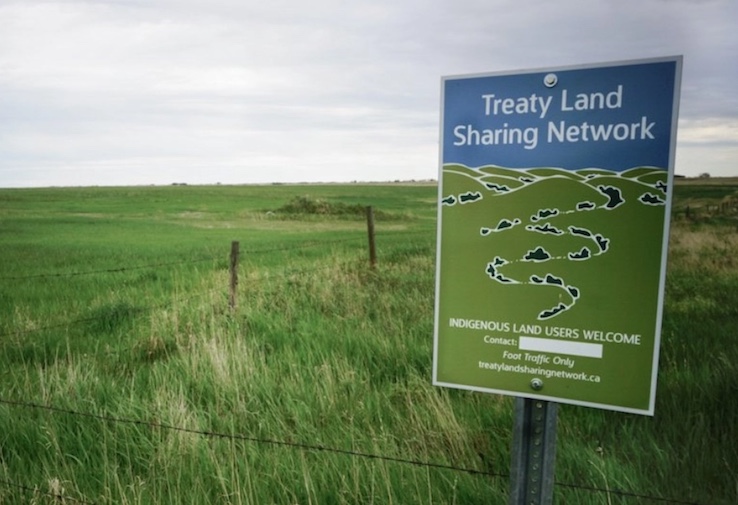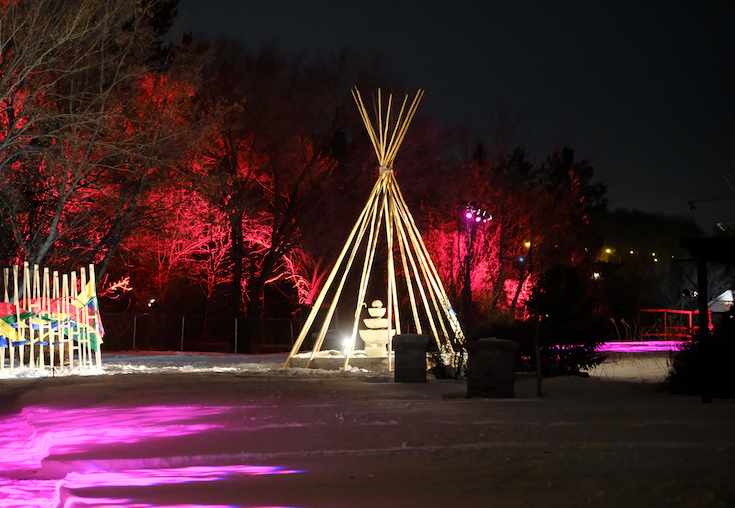École St. Gerard School Reconciliation journey
Education, YouthSaskatoon

École St. Gerard School has started on the path of Reconciliation, and part of this journey is a flag raising and Day to Celebrate Treaties in the Spirit of Reconciliation on March 20, 2018. The OTC chatted with teacher Cristin Dorgan Lee to find out about why the school undertook this journey and ask for advice for others.
Why has École St. Gerard decided to undertake the Reconciliation journey?
At the beginning of the year, we always set our learning improvement plans for the entire school. We ask ourselves what are we going to focus on? What do we need to grow on as a staff and as a community in bettering our children for the future with their learning?
What we decided to do was focus on treaty education this year. From a Catholic perspective, we incorporated the act of Reconciliation within that and how are we going reconcile ourselves with others and, therefore God, in making sure this is the best world.
We undertook studying and learning more about Treaties. We brought in speakers to come and share their knowledge of Treaties and how we can grow in understanding of our own Treaty relationships.
Then we said we need to work towards a goal, and we worked towards our day to celebrate Treaties on March 20, when we will have activities throughout the day.
In the afternoon, we will gather to raise the Treaty 6 flag. Both the church and school community, as well as the community at large, because it's all of us working together to inform our relationships within treaty.
What would you tell other schools or organizations who are starting out on this reconciliation journey?
I would tell them to start wherever people are at. Start by informing people with the correct knowledge of Treaty because this isn't something that we learned growing up. There is a lot of information out there; with the OTC there is a lot of information online that we can access and people you can invite into your school.
When you first started talking about this was it difficult to get buy in?
I wouldn’t say difficulty, but there was a general sense that we lacked some knowledge and understanding ourselves. Staff didn't want to do anything or say anything to offend anyone. We quickly learned it’s OK to say to ourselves, “Ask the questions; don't worry; we're not here to judge; we're here to find out more information.”
So, it wasn't, “No, we can't do this.” It was a realization within our community that we need to know more about this to move forward, and that's where we are able to bring in the expertise of our elders and knowledge keepers to come in and guide us, to share, and to walk along with us in the journey.
Is there anything else that sticks out as an important piece of all of this?
Because we are talking about Indigenous perspectives more, we have had students coming up and saying with confidence and with pride, that “I am Indigenous. I have Métis heritage. I am First Nations.” Before, this may not have been a common conversation that we would hear, or people wouldn't come out and say it out loud. They would have been more cautious in keeping that hidden. I think we've created a place where we are even more proud of everyone's heritage.

Some of the teachers involved in the First Nations Métis team at École St. Gerard School (Images courtesy GSCS)
(Answers have been edited for length and clarity)











